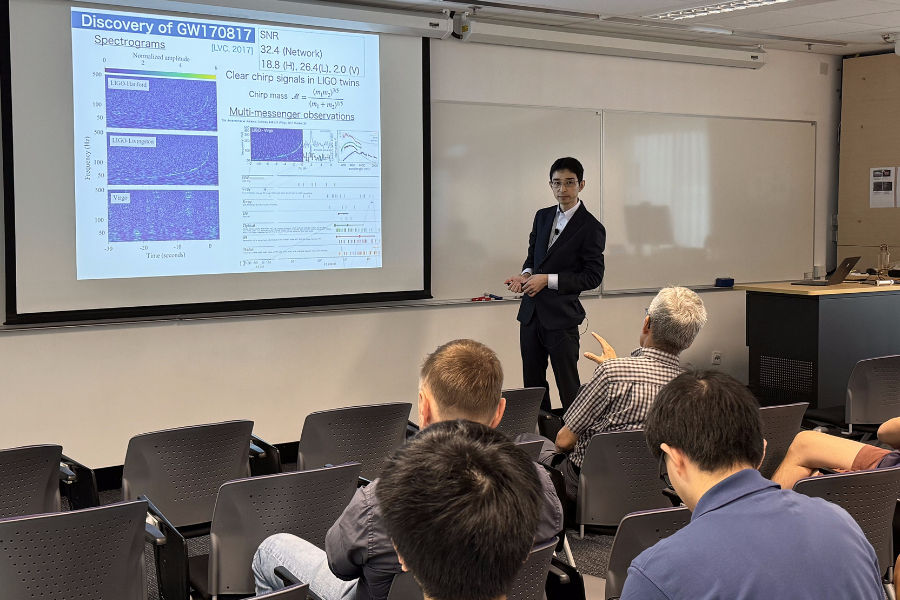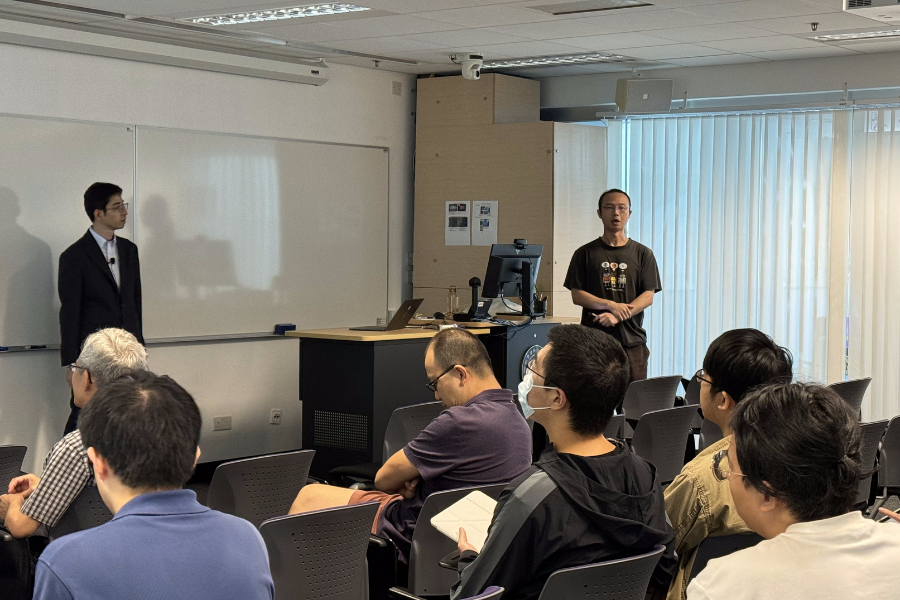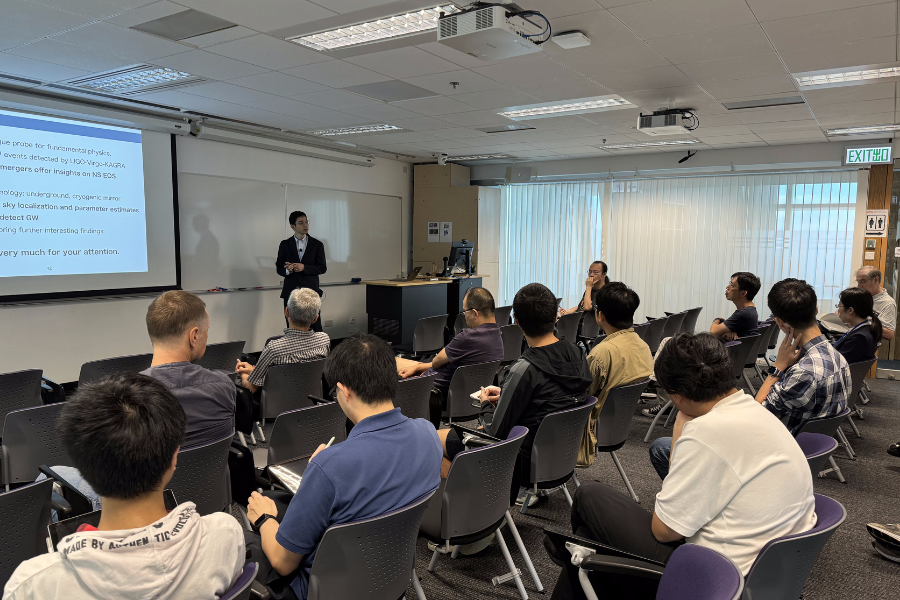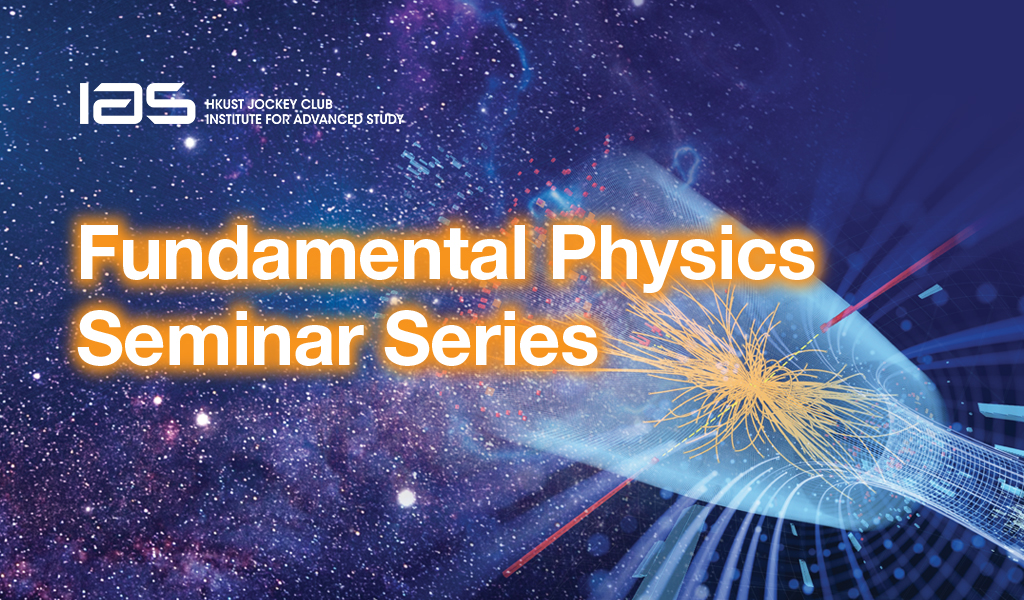Gravitational Waves Astronomy by LIGO-Virgo-KAGRA: Neutron Stars, Black Holes, and Exotic Objects
Abstract
Gravitational waves provide a unique probe for astronomy and exploration of new physics. Observation of gravitational wave signals by the LIGO-Virgo-KAGRA collaboration has brought several discoveries, which have extended our understanding of fundamental physics in the Universe. Among a lot of interesting themes, this talk focuses on speaker's recent works about gravitational waves emitted from binary neutron star mergers. Audience will get an overview of how tidal gravitational waveform models can help to explore the equation of state for neutron stars. PNTidal and MultipoleTidal, which are post-Newtonian tidal waveform models speakers re-formulated, will be briefly introduced. Results of applying the waveform models to GW170817, which is the first gravitational-wave event emitted from binary neutron star merger, will be shown. Finally, outlook will be presented.
About the speaker
Prof. Tatsuya Narikawa is a Project Assistant Professor in the Institute for Cosmic Ray Research at The University of Tokyo. He obtained his bachelor degree of Engineering from Osaka Prefecture University and his doctoral degree of Science from Hiroshima University. He has experienced as a Post-doctoral Fellow at Osaka University, Osaka City University, Kyoto University, and The University of Tokyo.
Prof. Narikawa’s current research interest mainly lies at data analysis of gravitational waves and the astronomical results derived from it. He has proposed an optimal follow-up observation strategy of small optical telescopes for optical counterpart phenomena of gravitational wave events. He has shown how gravitational waves can be useful to test exotic objects as alternatives to black hole in general relativity. Prof. Narikawa has also analyzed KAGRA data and contributed to detector characterization and calibration via data analysis works toward first detection of gravitational waves by KAGRA. His past work encompasses topics such as cosmological tests of modified gravity as alternatives to dark energy using weak lensing statistics of large-scale structures or galaxy clusters.
About the Center for Fundamental Physics
For more information, please refer to the program website at https://cfp.hkust.edu.hk/.
For Attendees' Attention
-
Seating is on a first come, first served basis.






